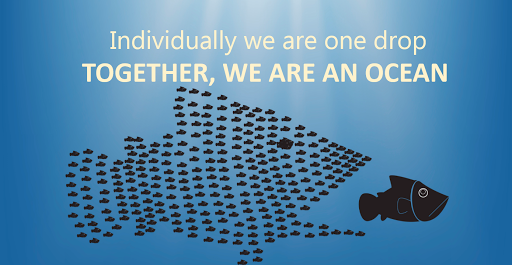Are You Swimming Into or Against the Current?
I left a marketing position for resorts in 2009 to join ICND where our focus was on vacation rentals. I quickly learned that the vacation rental industry was similar to the hotel industry, but growing quickly and up against some of the same hurdles as the hotel industry as well as many different challenges. Similarly, the hotels had already gotten comfortable with putting their inventory on the OTA’s only to learn that the OTAs then wanted rate parody, didn’t give the guests information, and were squeezing profit margins with their high commission fees. The hotels had to learn how to get guests to come back and book direct through direct marketing channels such as email and direct mail. They already understood the power of an email address and how important it was to get a guest to come back and #bookdirect.
Differently, the vacation rental industry faces a large amount of legislation from having most of their inventory amongst full-time homeowners who are complaining about vacationing guests being too noisy and disruptive in their neighborhoods and complexes. For hotels, they already were zoned for rentals. However, with the introduction of Airbnb into many of their neighborhoods and causing more competition, they are busy fighting against vacation rentals in metropolitan areas such as New York City.
By 2009, hotels had already gone through the era of major brand franchising and acquisition of mom and pop run hotels. Even the “mom and pop” brands had grown so big, managing multiple resort properties they had already performed much like a corporation. Meanwhile most of the vacation rental industry had historically been owned and operated by “mom and pops” successfully. ResortQuest was acquired in October 2010 and entered one of the major travel brands world-wide.
Air Bed & Breakfast
In August 2008, a company called Air Bed and Breakfast entered the marketplace, bringing new ideas and business model. The idea of shared accommodations entered into the playing field. While the vacation rental industry was known for renting the whole house, cabin, or condo, the idea of being about to rent a room or apartment short-term was now a possibility and added, not only awareness to vacation rentals, but also additional legislative battles we are facing today as an industry. By the time Expedia announced they would purchase HomeAway in late 2015, HomeAway was already living in the shadow of Airbnb as one of the most highly valued privately held companies.
 Today, Airbnb, Expedia, and Priceline (through Booking.com) continue to drive continued awareness (and traffic) to the vacation rental industry. Still, most vacation rental companies continue to be owned and operated by sole proprietors in locations that are historically well-known for vacation rentals such as the Outer Banks, Gatlinburg, and Breckenridge. As inventory in these areas doesn’t grow as much as the demand for vacation rentals allows vacation rental companies to increase rates, book more shoulder season stays, and increase their customer base.
Today, Airbnb, Expedia, and Priceline (through Booking.com) continue to drive continued awareness (and traffic) to the vacation rental industry. Still, most vacation rental companies continue to be owned and operated by sole proprietors in locations that are historically well-known for vacation rentals such as the Outer Banks, Gatlinburg, and Breckenridge. As inventory in these areas doesn’t grow as much as the demand for vacation rentals allows vacation rental companies to increase rates, book more shoulder season stays, and increase their customer base.
The original vacation rental companies that were founded 20, 30, and even 60 years ago were built on blood, sweat, and tears and often handed down leadership across generations. When we look back at the last two decades of the vacation rental industry, we realize we are in a time of big change with disruptions on many different levels of the business.
This disruption has led vacation rental company owners and managers to face many challenges like having to have a bigger presence in legislation and advocacy on a local, state, and federal level. It’s made vacation rental companies have to compete not only on a local level, but against large brand sites across the search engines and other marketing mediums. It’s caused changes in business models and using technology to streamline the company to perform as cost-effective and creative as possible. It’s brought about mergers and acquisitions at a pace the industry has never seen before. It’s caused increases in operational costs, marketing costs, and a decrease (many times) in commissions to manage properties. Vacation rental managers feel like they are often squeezed by both ends. But together, VRMs are doing amazing things against the rising tide.
The changes have also brought many positives, like a tremendous amount of awareness to the overall idea of vacationing in a house, cabin, condo, room that somebody else owns, as well as destinations that weren’t typical for vacation rentals. It’s opened up the amount of inventory available to manage. It’s help to show us that there is a huge amount of potential in delivering our message to millennials and they can, in fact, be very loyal to a brand. Technology has allowed us to be more creative and cost effective with every facet of running a vacation rental company: management, operations, housekeeping, and marketing/communications.
But, in time with such attention to our industry, we are asking ourselves, how will we continue to compete? How will you continue to strive? With marketing, there seems to be two roads… distribution, or more direct bookings. And even if you rely heavily on distribution, in the back of your mind, you know… you need more direct bookings. It’s like the holy grail of vacation rentals, but also smart to maximize your exposure with bookings through distribution channels.
Here are the steps…
Step 1 is having a website that is easy to use, allows for you to market your properties, integrates with your software, and allows for you to communicate directly to guests. A good website is built to be mobile friendly. More than 50% of traffic, on average, comes from a mobile device and conversion rates are going up every year. That means, a majority guests are still booking from a desktop, but more and more from mobile.
There are different tools out there like HotJar and Google Analytics that will tell you if your site converts well. You should always be looking to improve your conversion rate. Additional items that help you increase your conversion rate are quick user experience, offering search criteria that make it easy to find the right property, and offering all of the possibilities of linens, pet fees, add-ons, and travel insurance without having to call. In case you missed our last email, we gave you a checklist of items that help you convert more visitors into online bookings – Top 10 Marketing Power Moves.
Step 2 would be to make sure people can find your website in the search both organically (SEO) and through paying to cut through the clutter and be at the top through Pay-Per-Click (PPC). It’s time to invest in your website and digital marketing. What is your value proposition for search audiences that is going to make them book with you? Do you have the largest inventory of vacation rentals in the area? Do you offer a different guest experience? Do you offer something for free? You can always brag about the no traveler fees when you book on your site to help educate guests to come back and book with you direct.
Step 3 is to use social and email marketing to drive traffic to your website and to remarket to the visitors who have been on your website and haven’t converted. Email addresses are essential to be collected from guests that have stayed with you before, no matter how they found you. Emails should include: an offer, a reason to come (upcoming events or things to do), and call to action.
In conclusion!
Distribution is not out, but when you can market your properties on your own, these disruptions make a ripple rather than a wave. Distribution can still be used for tougher to rent properties, or shoulder seasons. Programs, like ICND’s Distribution partnership with MyBookingPal allows you to block out certain periods (like your peak periods) and only select those homes that need the boost to go out into the land of distribution. That helps maximize your income from your top performing dates and properties.
To be honest, I’m excited about what I see in the industry trends: the amazing amount of growth, the influx of technology, and the amount of investment. But we can’t just sit around waiting around to see what happens next, but make sure we are on top of our game. Don’t be a dead fish. We don’t have to go with the flow. Even if the current feels strong, ICND is here to help. Connect with us about your pain points and let us help you overcome your hurdles. Our experience with building websites and marketing for a diverse portfolio of vacation rental companies across the world allows us to provide the expertise to help you succeed.
 866.249.6095
866.249.6095
